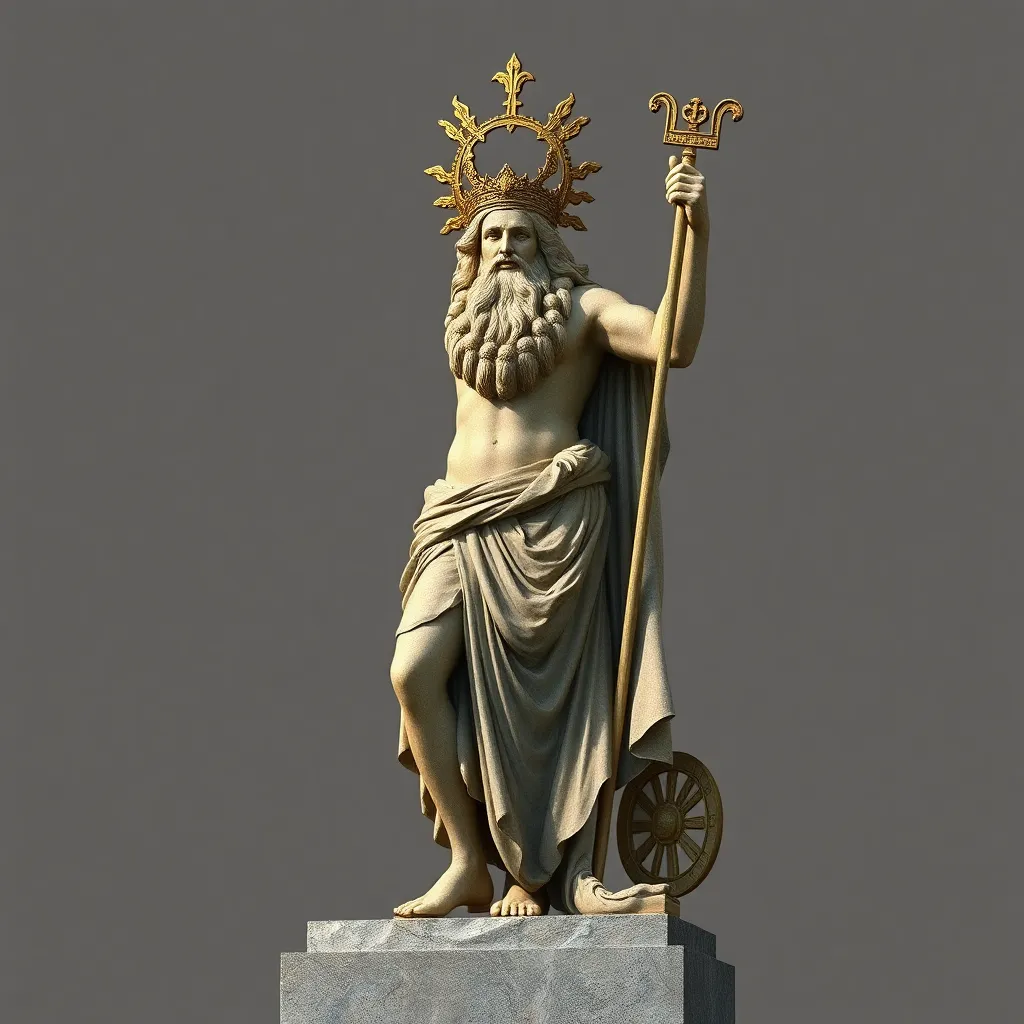Dionysus as a Symbol of Cultural Identity in Ancient Greece
I. Introduction
Dionysus, the Greek god of wine, fertility, and ritual madness, holds a significant place in Greek mythology. Known for his dual nature, he embodies both joy and chaos, making him a complex figure that reflects the intricacies of ancient Greek cultural identity.
Cultural identity was paramount in ancient Greek society, as it influenced social structures, religious practices, and community cohesion. The customs and beliefs tied to various gods, particularly Dionysus, played a pivotal role in shaping this identity.
Thesis statement: Dionysus embodies various aspects of cultural identity in ancient Greece, representing community, duality, and the celebration of life.
II. Historical Context of Dionysus
The origins of the Dionysian cult can be traced back to ancient agricultural practices, where the celebration of wine and harvest was central to communal life. Over time, this cult evolved, incorporating elements of ecstasy and ritualistic behavior.
Myths and rituals surrounding Dionysus, such as the story of his birth and his travels, served to reinforce the cultural narratives of the Greeks. The significance of these myths is evident in the way they explore themes of transformation, rebirth, and the cyclical nature of life.
Geography also played a crucial role in shaping the perception of Dionysus. The mountainous terrain of Greece led to the development of isolated communities that celebrated Dionysus differently, reflecting a diversity of practices and beliefs across regions.
III. Dionysus and the Concept of Community
Dionysian festivals, such as the Dionysia, were essential for fostering social cohesion among the ancient Greeks. These events allowed citizens to come together, celebrate, and express their shared identity through various forms of artistic expression.
- Bacchanalia: A festival characterized by ecstatic celebrations, music, and dance, which promoted unity and collective joy.
- Theatrical Performances: The Dionysia included competitions in drama, which not only entertained but also provoked thought and discussion on societal issues.
The communal aspects of the Dionysian cult were vital in reinforcing a sense of belonging and identity. Music, dance, and theater became means of celebrating shared experiences, transcending individual differences and fostering a collective spirit.
IV. The Duality of Dionysus
Dionysus is a symbol of duality, embodying both joy and chaos. This contrast is pivotal in understanding his role in cultural identity. On one hand, he represents the joy of life, celebration, and ecstasy, while on the other, he embodies chaos, madness, and the potential for destruction.
Wine, a primary symbol associated with Dionysus, serves as a representation of this duality. It is a source of pleasure and communal bonding but can also lead to excess and disorder. This dual nature reflects the broader societal values of ancient Greece, where the balance between civilization and chaos was a constant theme.
V. Dionysus in Art and Literature
The representation of Dionysus in ancient Greek art is rich and varied. He is often depicted with grapevines, leopards, and accompanied by satyrs and Maenads, illustrating his association with nature, fertility, and the wild aspects of human existence.
Literary works featuring Dionysian themes, such as Euripides’ “The Bacchae,” delve into the complexities of human nature and societal norms. The play explores the consequences of rejecting the divine, showcasing how Dionysus challenges the established order.
Dionysus significantly influenced the development of theater and drama as cultural expressions. Theatrical performances not only entertained but also served as a means to explore philosophical and moral questions within the framework of society.
VI. Dionysus and Gender Roles
The Dionysian cult presents a fascinating examination of gender dynamics in ancient Greece. Female followers, known as Maenads, played a crucial role in the worship of Dionysus, often participating in ecstatic rituals that defied traditional gender norms.
The significance of the Maenads lies in their embodiment of liberation and empowerment, challenging the patriarchal structures of society. Through their ecstatic dances and rituals, they expressed a radical form of femininity that diverged from conventional expectations.
This worship of Dionysus allowed for a re-examination of gender roles, as the boundaries between male and female became blurred in the ecstatic celebration of life and nature.
VII. Legacy of Dionysus in Modern Culture
The influence of Dionysian themes is evident in contemporary art, literature, and popular culture. Modern interpretations of Dionysus often explore themes of identity, community, and the complexities of human experience.
- Art: Many artists draw inspiration from the imagery and themes associated with Dionysus, reflecting on the duality of human nature.
- Literature: Contemporary writers continue to explore Dionysian motifs, using them as lenses through which to examine modern societal issues.
- Popular Culture: Films and music often incorporate elements of Dionysian celebration, highlighting the ongoing relevance of his legacy.
The enduring relevance of Dionysian motifs in discussions of identity and community underscores the god’s significance as a cultural symbol, paralleling other symbols of identity across different societies.
VIII. Conclusion
In summary, Dionysus serves as a multifaceted symbol of cultural identity in ancient Greece. His representations of community, duality, and the celebration of life encapsulate the values and beliefs of Greek society.
Understanding ancient symbols like Dionysus enriches our comprehension of modern cultural narratives, illustrating how these themes continue to resonate today.
Ultimately, the legacy of Dionysus remains vital in shaping cultural narratives, reminding us of the complexities of human experience and the importance of community in our lives.




